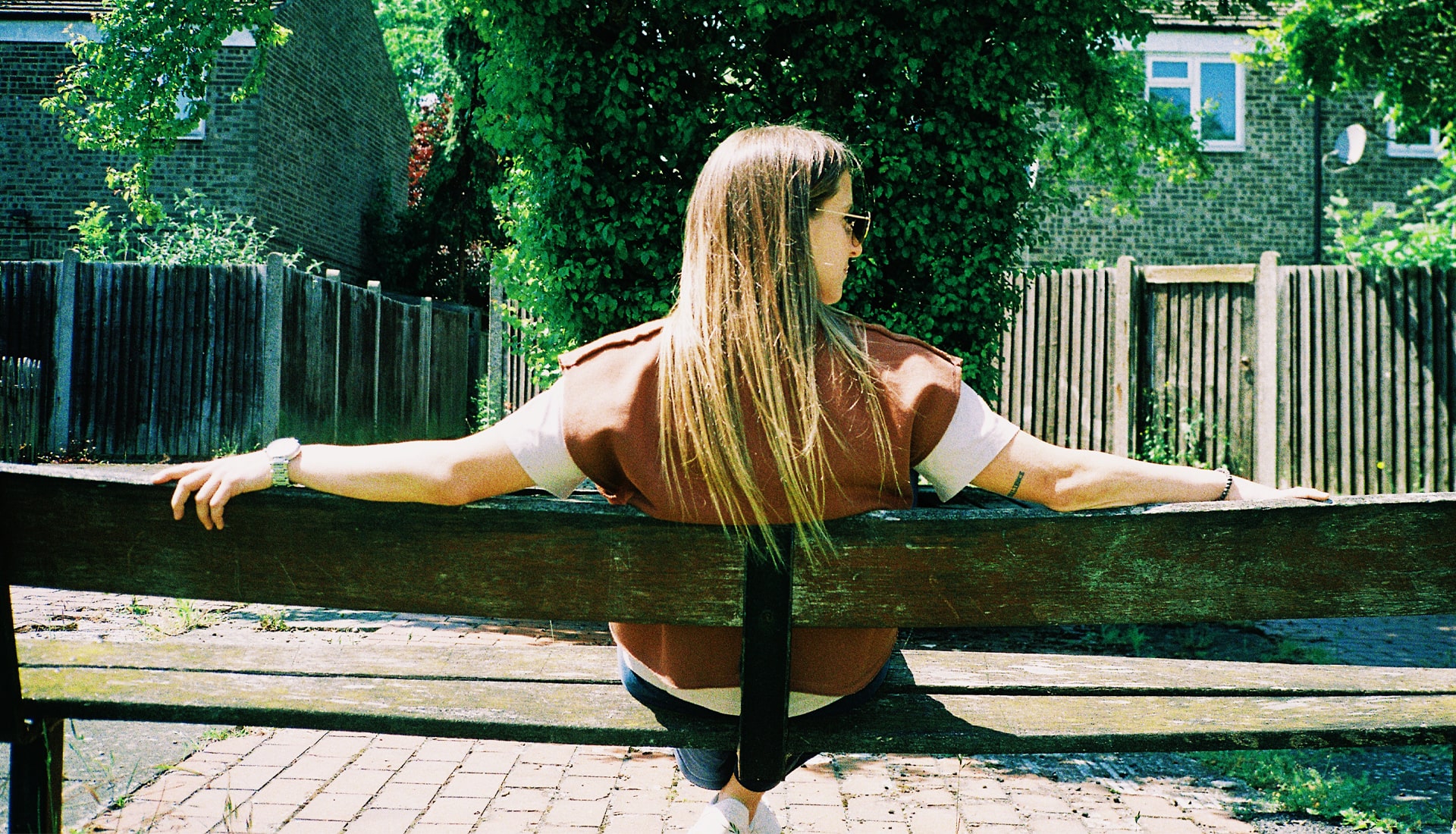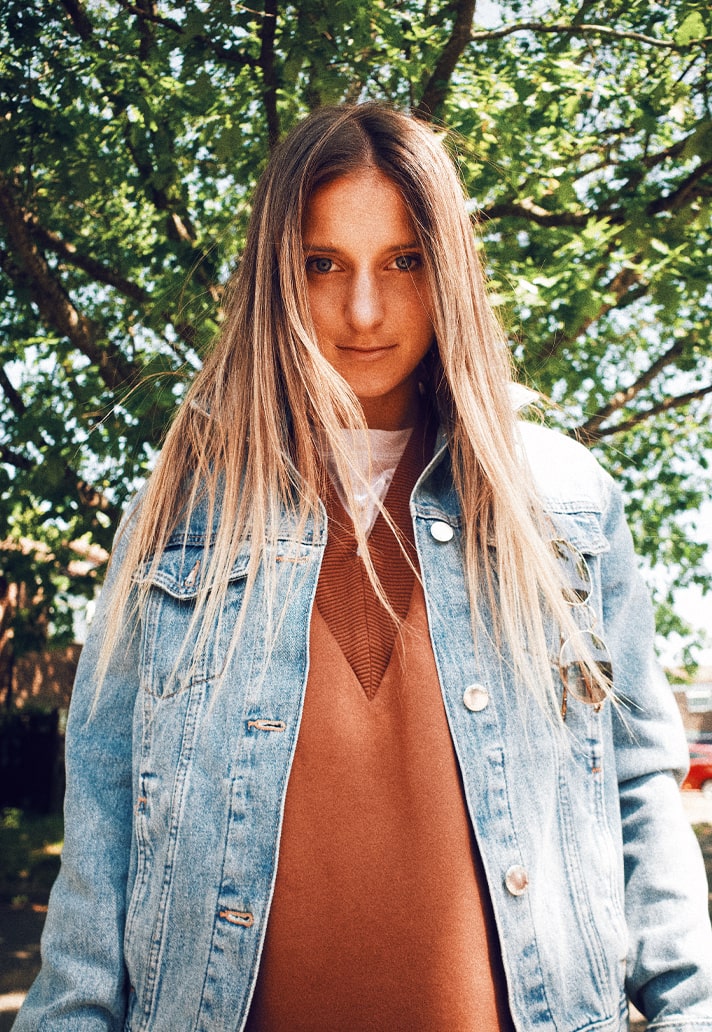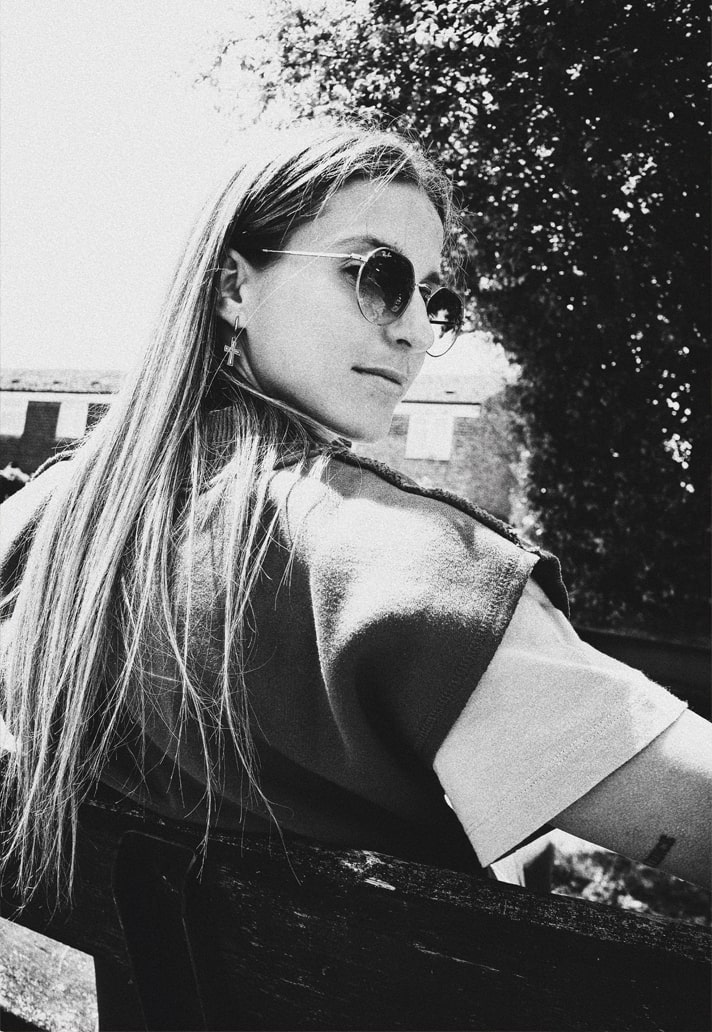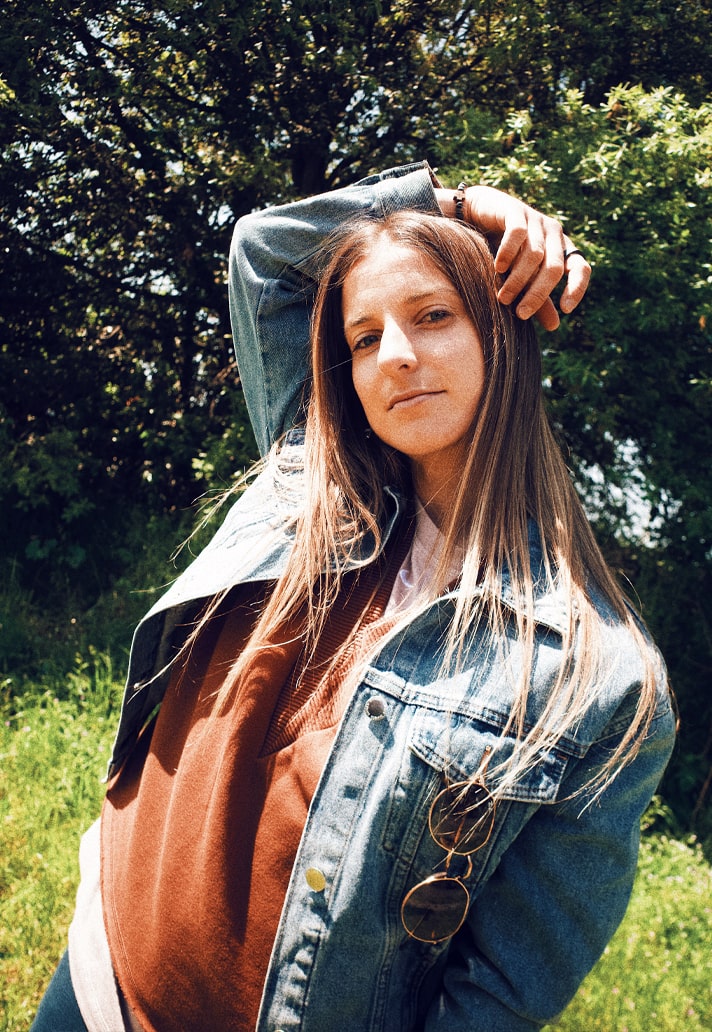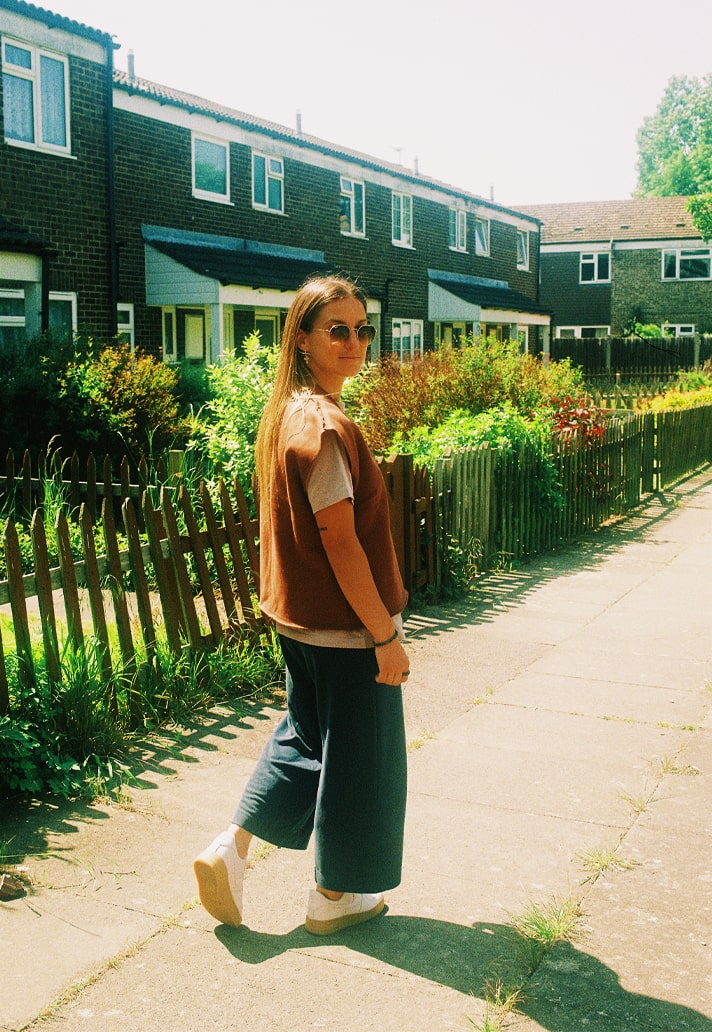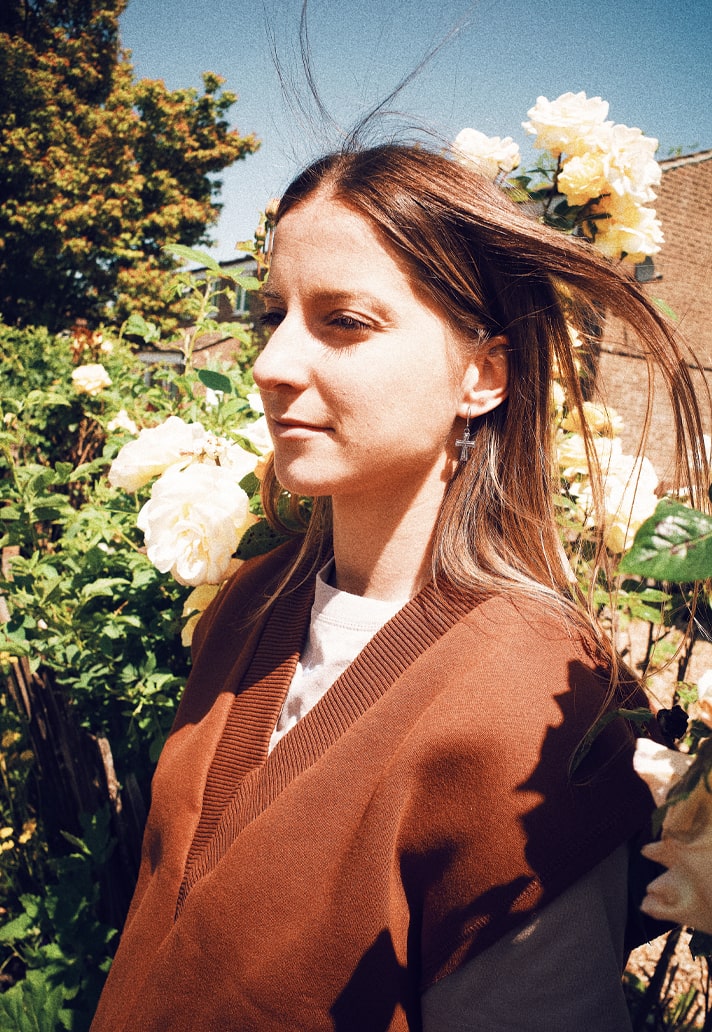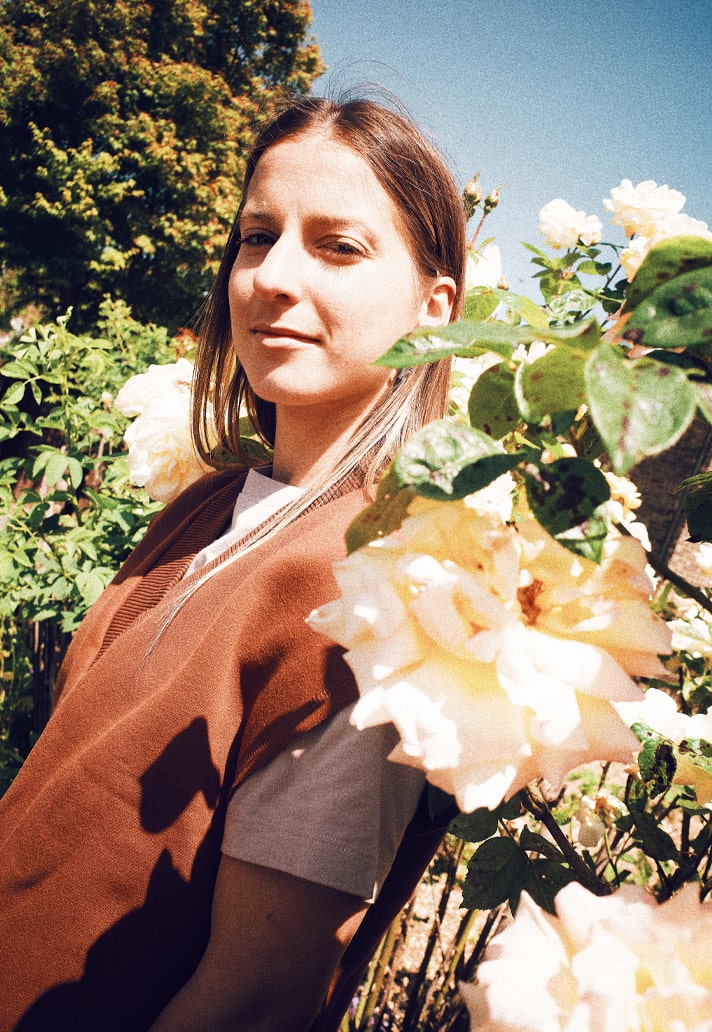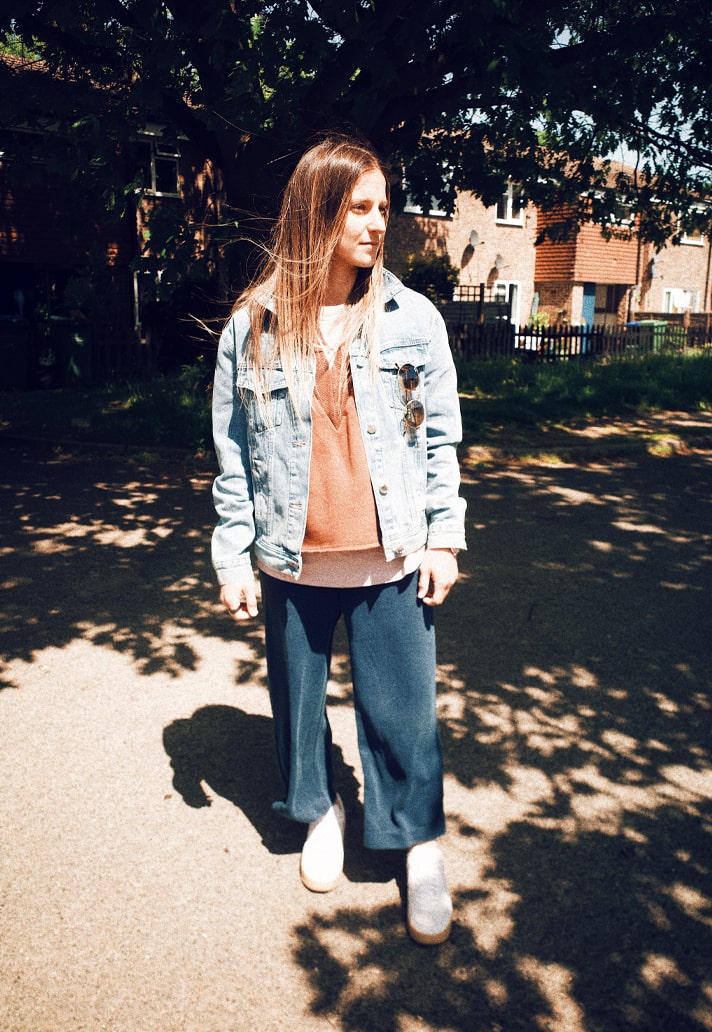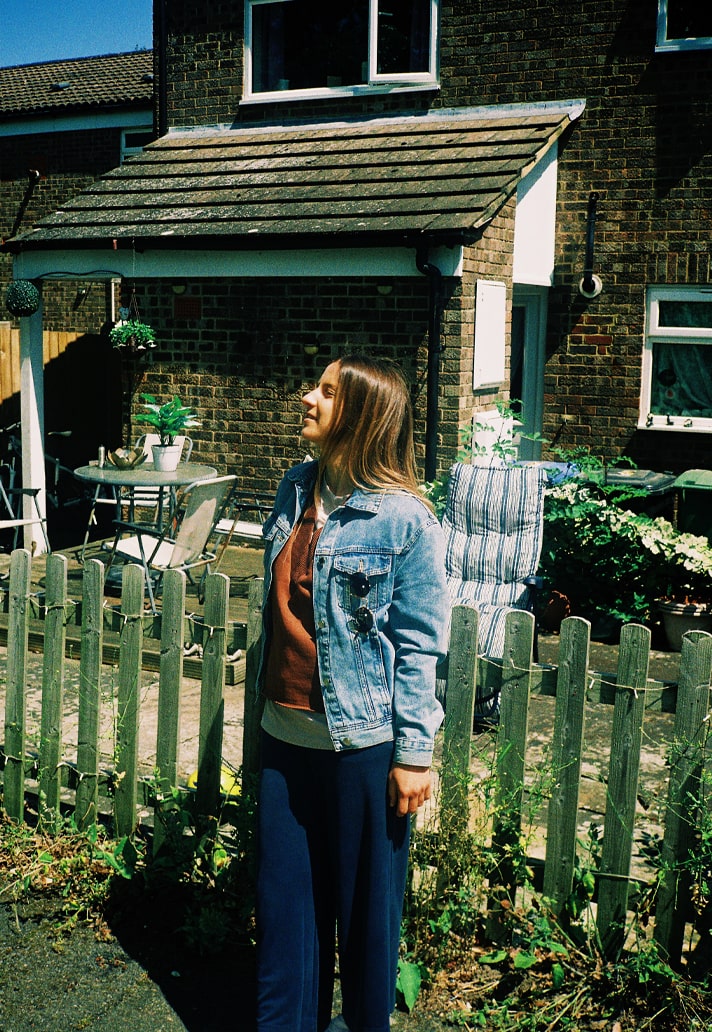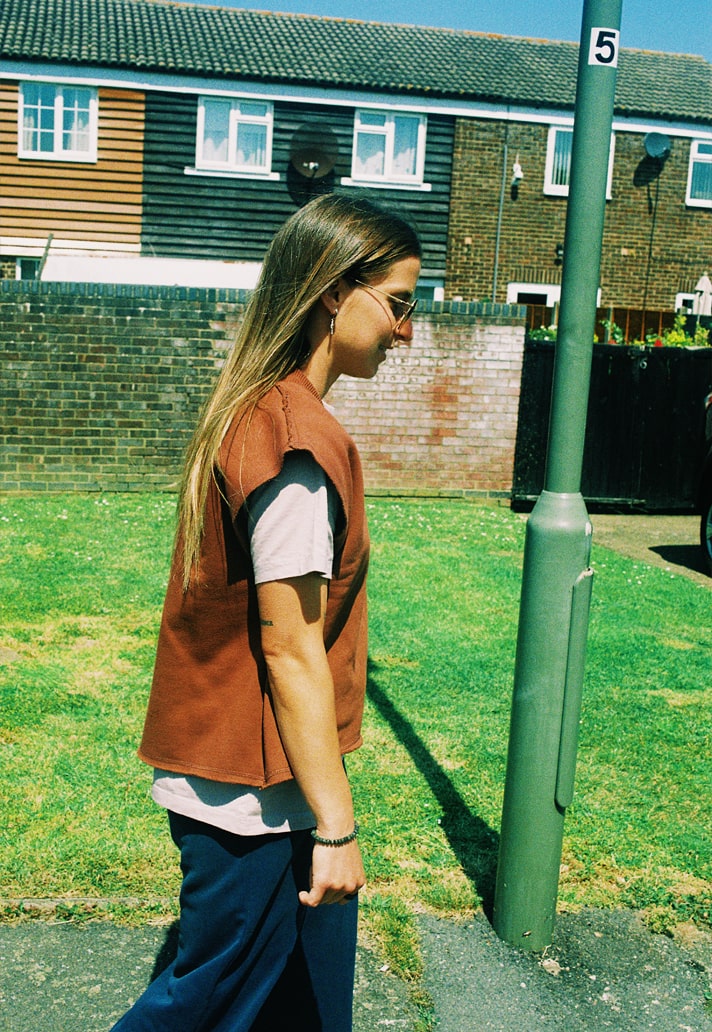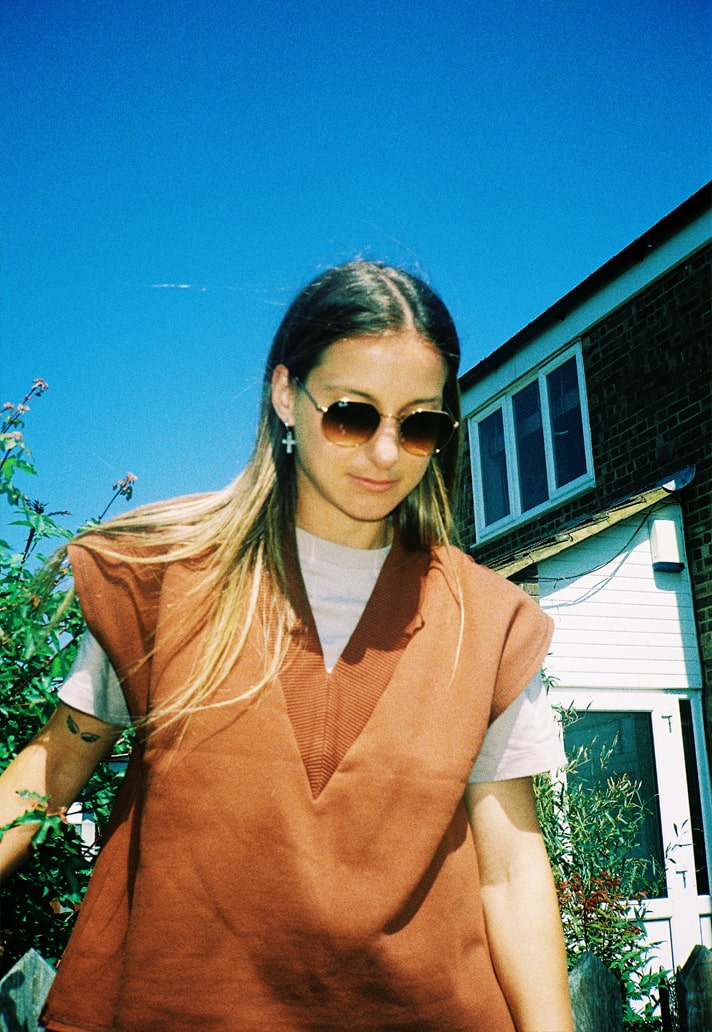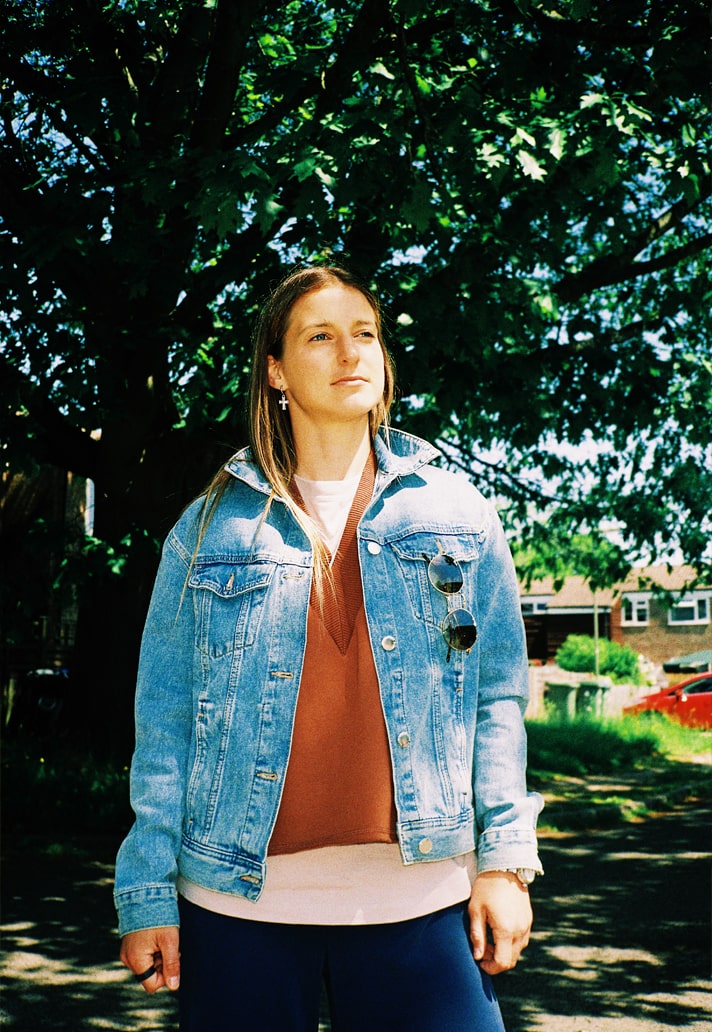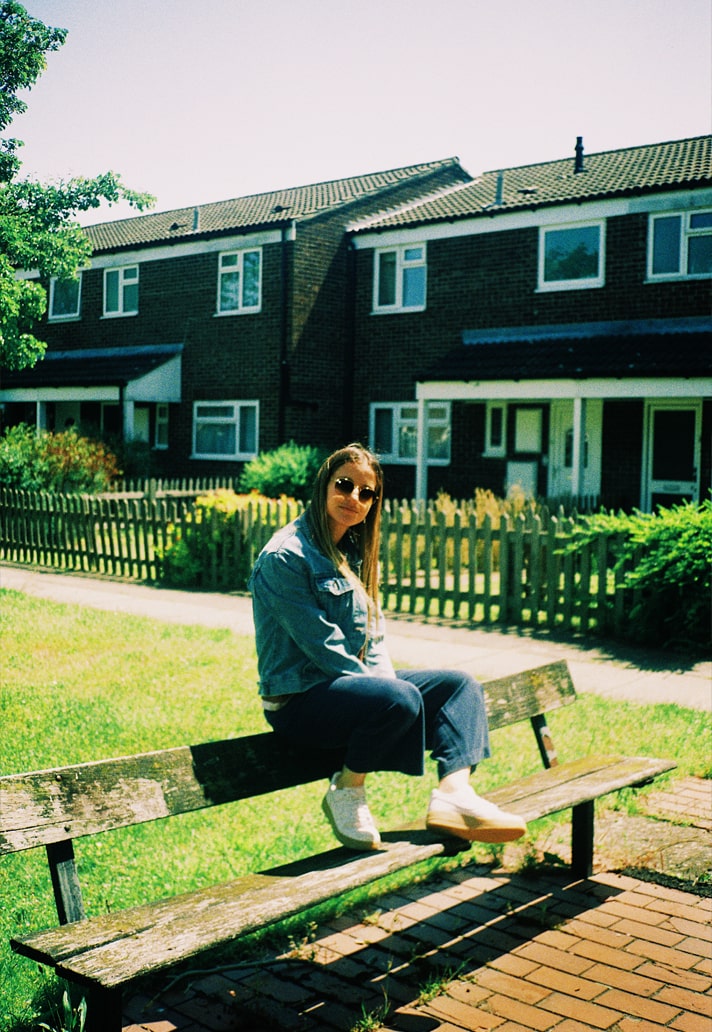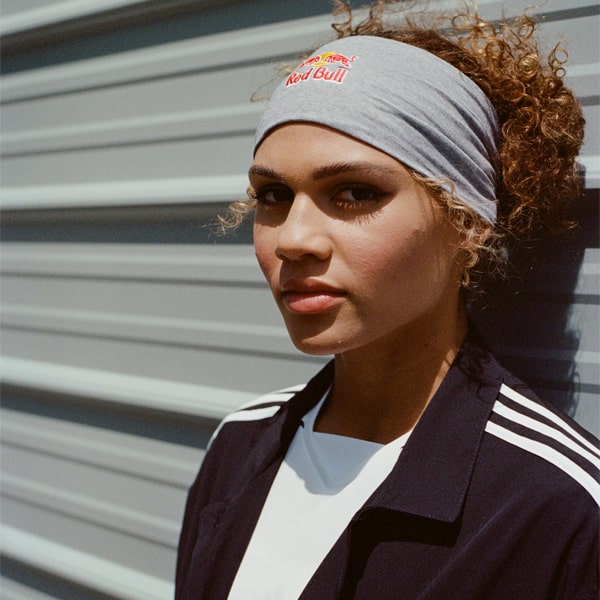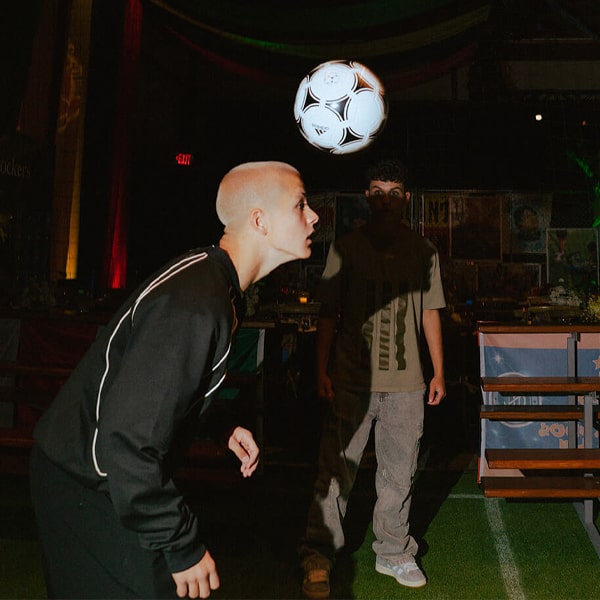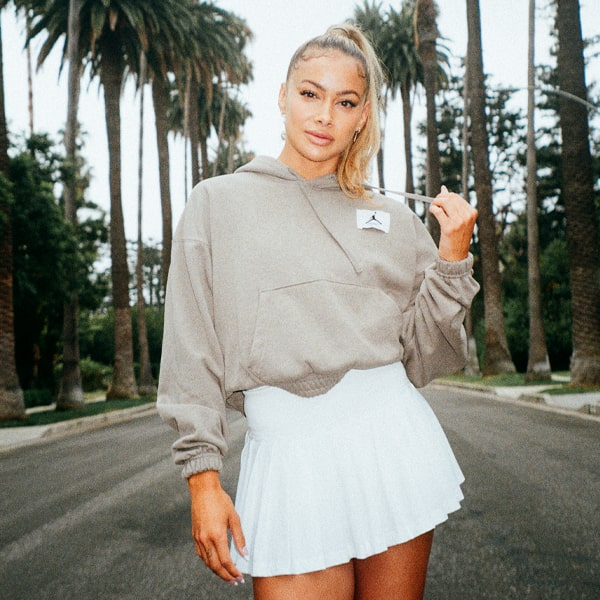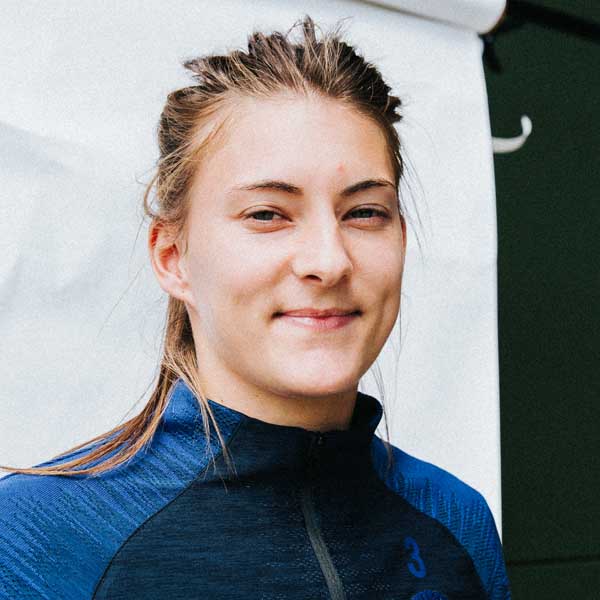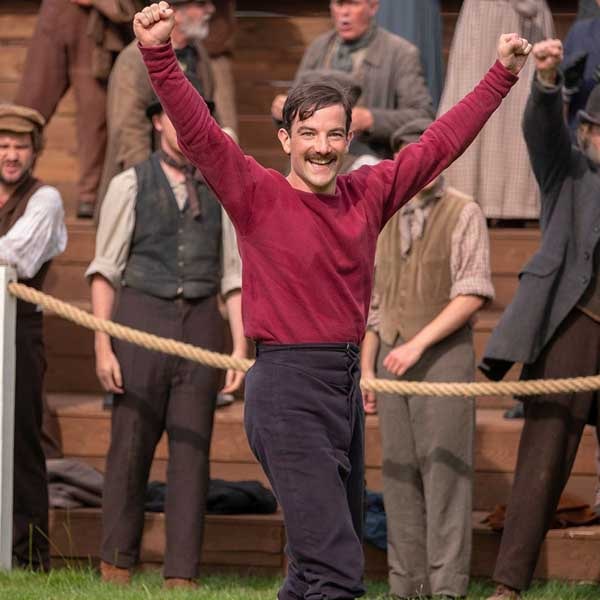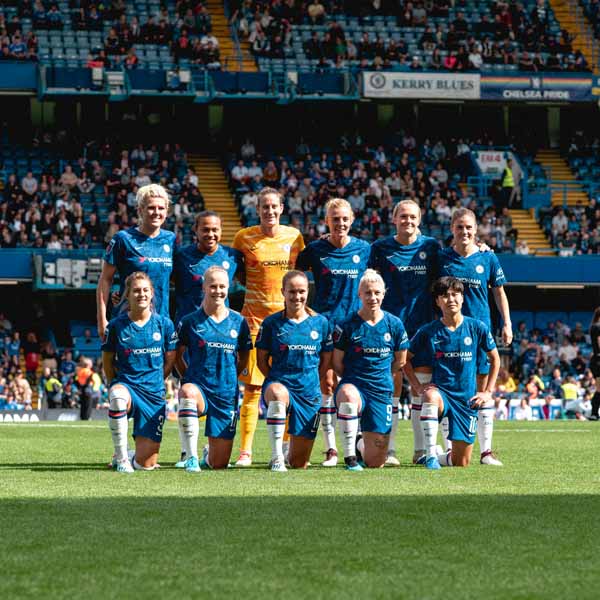Arriving in a new country to join a new club in a new league… and then winning the double! Chelsea’s Jelena Čanković took her first season in the WSL in her stride, and now she’s looking for bigger and better to come.
You’d imagine moving to another country, experiencing a different culture and having to get up to speed with how things are done would be a bit daunting and that it may take a bit of time. But for serial winner, Jelena Čanković, who’s played in her home country of Serbia, Spain, Hungary and Sweden prior to her move to England, it’s become second nature, and the change doesn’t even seem to faze her all that much. Well, apart from the Beans on toast, that is.
One year into her journey with Chelsea, and she looks to be settling in nicely, with a double already under her belt. Again, you’d think coming into a squad that had just previously won a double might be intimidating, but nah, for a player that can lay claim to being a league champion in all four countries she played in before coming to England, it was just the next step in an already incredible career. This is a champion in all senses of the word.
Following her whirlwind first season, we caught up with the Serbian international ahead of a well-earned break to find out all about her early life and introduction to the game, her first season in England, and how she adapts so easily to new challenges.
Firstly, congratulations. Must feel great coming off a double. How does it feel?
Yeah, thank you. It's a really great feeling. It's my first season in England, so to win the double, it’s what I came here for. It's been a long season. For how long it is, you don't even have the feeling at the moment. It might come in a week or so. There's so many games, so many things happening. Maybe you don't have time to reflect, but it will come.
It’s a good standard to start off at – you've completed it already! How does that feel in terms of season one: mission accomplished?
We compete in four different competitions and we want to win all of them. So even though we won the double we want more, always. That's the thing, we always try for more. For me personally, for a first season, I'm really happy. The double is amazing.
How’re you feeling post celebrations?
It was quite a big celebration. As I said, it was such a long season that everyone just felt relieved. We all have a vacation now and a lot of girls are going to the World Cup, so we celebrate, but you know what's coming also. But yeah, it was just a big relief, because it's really been a long, hard season.
What about the party itself do the stories from that stay locked into who was there?
Yeah, it does! Obviously, people are posting on social media, but the party we just won the title, we want to celebrate. And we deserved it.
It's amazing that the season went to the wire like it did, it was exciting on so many levels. It must have felt like a massive relief at the same time to properly clinch it in the way that you did. Was ever in doubt?
No, I don't think anyone ever doubted. But it was hard. When it's happening, you don't really think, you just know what you can do. And that's what we focused on. But definitely, there were situations when you maybe aren't performing at your best. Maybe we didn't have the best games, but we still won and I think that shows the quality of this team. When you're not your best still, now you can win. So, there was some really hard moments, but it was never a doubt for us.
When you think back to the dreams you had as a kid compare that to what you've achieved this season. Does it marry up to those dreams?
Yeah, definitely. As a kid I always liked to win, and that hasn’t changed. And for me to play in teams that are always fighting for titles, that was always really important and even though it's hard to see that now, as I said, you don't reflect on those things that much. But once you think about it in months or years to come, it's definitely something I dreamt of, to fight for titles and play alongside the best players in the world.
Take us back to those days when you were a kid growing up in Serbia how did football first come into your life?
It was quite a hard situation for everybody back then, because the country had been through so much. That war in ‘99 – I remember that because I was four years old. So just in general, hard times for everybody just to live. So, people are just getting used to the changes and how to live. I had amazing parents and had everything I really needed. And when I decided to play football my parents, they didn't know where to bring me. If I was a boy It'd be easy, but I was a girl.
I started with my dad, because he was playing football just in the backyard and I’d watch him. I was five or six years old and I watched my dad juggling and I had a go and I could do it. And I wanted more and more and I wanted to play football.
So, they were discussing where do we bring me because I was a girl. Then there was an advert on television for a juggling competition, and I said I wanted to do that. It was so weird, but I wanted to compete. I was six years old, but my dad brought me there, and I was the only girl, but I was good. Everybody was surprised. Then my dad took me to a proper training with boys, and there were some other girls there already. So yeah, that's how it all started.
There were plenty of hard moments because when you're a girl with all boys, things happen. And I was maybe not as aware at that age, but I was good and they said I could play so it was fine. It's a bit scary when I look back at it now, because I didn't know anything about women's football.
I had so much love and support from my parents and family. At that point, it was a hard situation in the country, for everybody. But they said, do you want to be a footballer? And they supported me with everything I needed to become that. They put everything into me making it. It's one of the reasons I'm so thankful.
Literally, from the age of seven I knew that I wanted to be a professional footballer. There was never any question of that.
So in that sense that was all you had your mind set on. Was there anything else that came into your thinking at any point, say when you were 14 or 15?
No, that's the thing, there was never anything else. I don't know what it is, I just wanted to play football. It was a dream, but I knew I was just going to do it. I just grew up like that. When I was 13 or 14, I went to secondary school where it was like a sports school. Then, when I was 15, I moved away to another city. And it all just went like that.
We saw the picture of you when you were a kid with the Saša Ilić jersey on. Who did you look up to and what was it about them That sparks something in you.
So at first it was definitely Saša Ilić. He played for Partisan. I was six and I was a partisan fan. I still am. It’s hard to say what it was about him. I always liked players who are technical and different, and that's what I like on the pitch. As a kid, for me it's hard to remember about him because I was only six, but I watched every game. I actually met him once as well. I was a huge fan, so to have a jersey from him was amazing.
Later on, it was Ronaldinho. He was my big idol. I really like when people played with a smile, when you enjoy it, when it looks like you actually play for fun. And that was the thing with Ronaldinho that I just loved; he made the game look so easy. Beautiful football. I think that's what attracted me the most.
The women's game has come on a lot in the last few years, but has there been a time when you stopped and reflected on the highs and the lows to see where you've got to?
To be honest, I think sometimes about it, but not often, because I'm always striving for more. It's hard when you're still playing because my mind is on what's next, so it's hard to look back. I have those moments sometimes when I talk to other people, and it'll be them that make me realise when they say “look how far you've gone”. I think the feeling will be bigger when I stop playing, so I wouldn't say that I do it in a proper way yet.
How would you describe your journey as a whole? It's been a lot of ups and downs and you make it sound so easy, but has it been enjoyable or pure graft.
I'm super proud of it all because it's been hard. So hard. But I'm just proud of what I’ve achieved because it's hard coming from such a small country also. You get different challenges, just in general. For every footballer, each of us has had our own challenges, and these are the things that I'm proud of. You fail, you come back, you fail, you come back... I feel so fulfilled as a person because you just grow throughout your journey.
England and the WSL. How does that compare to other places you've played?
The league is really, really competitive. There's so many great players. It’s different and the style of football is so different than most other European countries. It's more transitional and faster. Maybe less tactical, more transitional? But it is more fun as well, definitely. It's also fun to watch. It's nonstop, for 90 minutes. I think that's the biggest difference and I really enjoy. It.
It feels like the place to be in terms of spotlight and the performance of the league. Is that fair?
From my perspective, it's hard to say. Of course you have super good teams in other countries too. But to say the league and all the teams? It's always debatable to say the best league. Every league has good things, but from my perspective, I think it's the best place to be.
We've seen sell out stadiums and the connection between the fans and the clubs is getting so strong. How's that being compared to other places that you've played?
That's been so amazing for me. In general in England, how people are so passionate about football is amazing, and it's like almost everybody has their own team. People travel so much just to watch our games and it's such a nice experience. The fans here are amazing. To be part of our culture, it's just amazing. The football culture in England is amazing. It's amazing to be a football player here.
So, away from being a player, have you had any chance to experience football as a fan in this country?
Yeah, I love football and I watched football pretty much 24/7. That's the thing. I just love the culture here. It's so amazing. It feels like when y'all team play, you spend all day preparing for it. It is different to if I was to watch Partisan. Here it feels like it’s in the culture. Though I can say that the Derby in Serbia between partisan and Red Star, it’s a game that Is much watch. You have to experience it. But it's so different with the fire and the fireworks is so intense. But here? It's like it's a cultural thing. You go to support your team and you have your team. It's just different. It doesn't matter which day it is. Hear your fans every day. So when I get the chance, go and watch a game, it's amazing.
English culture away from football – have you had a chance to have a Sunday lunch or start your day with a full English breakfast?
English culture is quite strong and traditional, you can really feel it. In some other countries it's not as obvious. Here though, I can immediately see the things. It took me a while to get used to it and it's different to the other countries I've been in, but it's traditional and has its own character. I wouldn't say I'm a big fan of English food though! Beans on toast? Not my thing!
How does it feel to have the medals you've got … to have something tangible to actually hold – Are you sentimental like that?
It's hard sometimes when you've won it and you feel it is great in that moment, and I like to save jerseys and put them together in the same spot as the medals. When you see all of that, it's nice. Remember the moment.
What about being recognised as the Serbian Player of the Year? That has to be a particularly proud moment.
It was definitely such a proud moment because in Serbia, women's football is at a really good place. I was only the second female player to actually get that, and that's what makes it even more special. We're making steps, we're getting awards.
When it's from your country, it's always different, and it's always special.
You've talked about the love from your parents and the support you had, so that must have been a proud moment for them. Could you sense that?
Yeah, I haven't lived with them for 12 or 13 years, and I haven’t lived in Serbia for 10 years, so when you win something abroad, it feels far away and maybe they can't feel it as much. But when it's in Serbia it’s different and I think that was a special day for them. They were actually there. When I won the title here, they can travel, sure, but it takes time to arrange because of visas etc. and they can't really feel it in the same way. So, this one was a really, really special moment.
Whether it's through football on the pitch or an award away from the pitch, how would you measure success and what does success feel like for you?
Even though I love winning trophies, you don't measure it like that. For me, success is feeling like you've done everything you can to reach a goal. Success is when you do everything that you can and then you get there. It's not the trophy, it's what's behind it. For me, that's more important. And just that feeling of knowing how you did things, of what you need to do to get there. So, it's not just the trophy, it's the journey. What you become.
For me, I value hard work, and doing the right things. To do everything you can to be the best. The question I always ask myself is have I done everything I can do and if I have and I left the trophy, then that’s still success. It’s that mentality for me.
For me, even if you win something, deep inside, you have to question, is that success? Success is not the trophies, it's what you do on a daily basis.
How about how you've evolved as a person? Have you found different things about yourself along the way?
For me, playing football and travelling a lot, you just evolve so much naturally. Every time you change country, you meet different people, it's a different culture, there's different things to do and you need to adjust.
I came to live here, so I need to adjust. It doesn't mean you have to change. But you have to be more flexible as a person, and then you grow so much, you learn so much. It's about being open. When you meet other people you learn from them. You might go to another country where something is popular and you realise, oh, I actually quite like doing that. This is one of the reasons why I'm so proud I've played in so many different countries, and I've changed a lot throughout this time.
What are the biggest influences from the multicultural changing rooms that you've been in?
From this country, for me, something that's been different is how important Women's football is, how much bigger it is, and how the players are more popular and famous. That's something that I haven't necessarily experienced in another country.
It's still important to keep your individuality in a changing room where there's so much influence from so many different places though, right?
I'm not changing myself. I am who I am. But you do feel in society that people have an opinion of you, despite not knowing you. I would say for me that I've become more aware of that. For me, there are certain things that are important, like doing the right thing and doing everything I can to be the best. Maybe the things outside of that are a bit less important, but in the modern game, it is important to constantly improve.
With the level of the game, what does it feel like to be a role model now?
It feels amazing to see so many people and kids following you. It's nice. And it's nice that you can show the girls that you can make it – you can be a footballer and play and make a living from it. You can do anything you want. And that feels amazing. Being a role model, you can see that people follow you and look up to you and it's really nice. Obviously for me, it was important I had role models.
It must be nice being able to put smiles on kids faces when you see them at games…
Yeah, it's funny seeing the kids screaming and stuff, but it's funny when it's you. You don't really think too much about it. It's like you just laugh or something. But it is amazing when you stop and think about it..
You’ve made it to the end of the season – it must be such a relief. It's like a steam train barrelling along, then all of a sudden just stops.
Yeah, it's so nice. It's a long season and there's so many games. But it's also so mentally exhausting, especially when you play for a team who fights for every title. It's not physical so much, but it's just the mental exhaustion. We're all together in the same bubble for eight or nine, maybe even 10 months, and it feels so nice to have that release. It's now a long break and I can focus on doing the things that I like that I don't necessarily get the chance to do when I'm playing. During the season it's all about football, but now you can relax. Maybe travel, be with family, do just normal things!
So what are your plans for this summer?
I'm going to Italy tomorrow to do a cycling vacation for four or five days.
So not much relaxing…
Mentally chill, not physically! Yeah, from there then to Cyprus, where I’ll chill, then Vienna and Budapest. Then to Serbia to see family, but then we’re back with the national team in July. I don’t have a World Cup to worry about, so I’ve planned for the next month, but that’s about as far as I’ve gone.
It must be nice to have the time off, but when you look at the World Cup. Maybe Serbia making it one day must be one of the dreams. What are your other dreams?
I’d definitely like to win the Champions League. That's a big dream. Then with Serbia, the World Cup is maybe a bit harder to qualify, but the Euros? I think we have the quality to qualify, so that's a big dream to play a major tournament for Serbia. These are special moments for a footballer.
Off the pitch, the goals are like in a daily basis, just improving myself. It's hard as a footballer to have anything away from football but just to keep educating myself on a daily basis. Especially on things I'm interested in. And just evolving generally.
Jelena Cankovic wears the Nike Air Zoom Mercurial Superfly IX, which you can shop at prodirectsport.com/soccer
